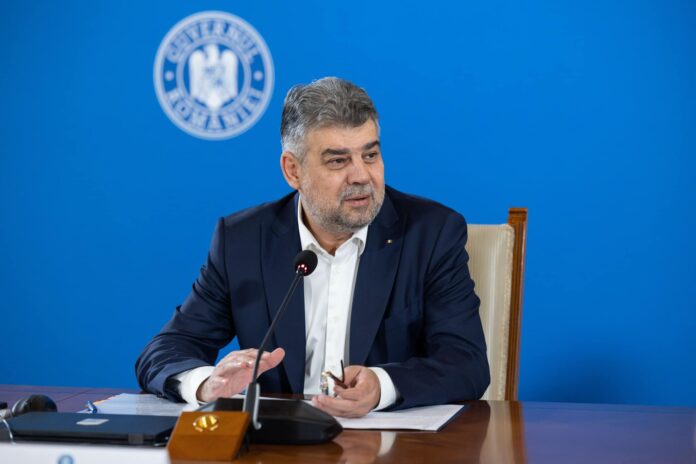The Government will adopt in Monday’s meeting the ordinance on some fiscal-budgetary measures, dubbed the ‘little train’ ordinance [name given to emergency ordinances adopted by the Romanian Government, that include legislative amendments with financial and economic impact and are adopted at the end of the calendar year, to be implemented the following year, editor’s note], announces prime minister Marcel Ciolacu.
He recalled that Romania has obtained from the European Commission an extension from four to seven years to reduce the budget deficit, and the first step is to reduce it to 7% in 2025.
„At this point, irresponsible economic behavior would automatically mean the downgrade of the country’s credit rating, investors chased away and loans at very high interest rates. This means recession, bankruptcies and unemployment for many Romanians in the short term. This is why I decided, together with our coalition partners, to adopt today the so-called ‘little train’ ordinance in order to keep under control the budget deficit in 2025, as we have committed to the European Commission through the fiscal plan. We have obtained an extension from four to seven years to reduce the deficit and the first step is to bring it down to 7% in 2025. This means that we will continue to have access to European and PNRR [the National Recovery and Resilience Plan] funds, which are so necessary to continue Romania’s modernization,” the prime minister said at the beginning of the government meeting.
He stated that the ordinance is structured on three „fundamental” objectives: stopping the increase of state spending, reducing budget waste by 1% of GDP (19 billion RON) and increasing budget revenues by implementing the structural reforms of the National recovery and Resilience Plan (PNRR).
The ordinance is not one of „austerity or poverty”, the prime minister said. „Austerity was when salaries were cut by 25%, when VAT was increased from 19 to 24 or when schools and hospitals were closed”, Ciolacu mentioned.
Measures to reform the state and cut public spending will be adopted in Monday’s government meeting. Thus, the salaries of dignitaries will be „frozen this year as well”, and parties will receive amounts cut by 25%.
In 2025, „there are „no financial resources” to increase the salaries of civil servants, the premier added. At the same time, no additional bonuses and prizes will be granted.
„Every penny paid in salary will be justified by performance criteria and evaluations. State employment will be frozen in 2025 and we will move quickly to disband and merge public institutions and agencies. We will adopt an established model and we will set up the Department for the Streamlining of Government Activity, which will reduce state spending by 1% of GDP next year. Specialists from other government areas will work pro bono in this department,” he explained.
According to Ciolacu, the government has adopted those measures included in the fiscal reform of the PNRR that have „the least impact” on economic growth.
„We have refused to cut investments or to increase taxes on profit or income, just as we refused to increase VAT, which would have led to higher inflation. Therefore, we eliminate all tax breaks and we are creating a fair tax system. We are gradually reducing the tax threshold for micro-enterprises to avoid a shock in the economy. Around 30,000 SMEs will be affected, namely 10% of the total, but we will try to support them through other state aid schemes,” the prime minister added.
He went on to say that the introduction of the special construction tax will be applied only after the regulations are issued and after the Minister of Finance holds discussions with large companies that will have investments.
„We will keep our seventh place in the European Union in terms of the lowest dividend tax. In our country we pay 10% as of January 1, but Hungary has 15%, Poland has 19%, the Czech Republic has 23%, while the EU average is 20%,” said Marcel Ciolacu.
AGERPRES




